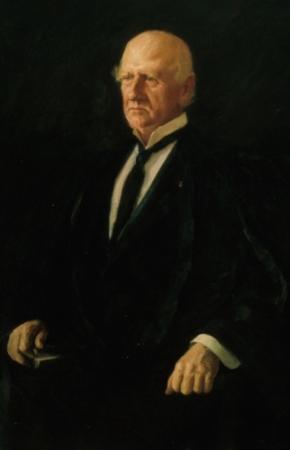You are here
Circuit Court Opinions:
Associate Justice John Marshall Harlan, United States v. Matthews (1888)

United States v. Matthews, 35 F. 890 (C.C.D. Md. 1888) [Fourth Circuit]
The defendant was a substitute clerk at the U.S. post office in Baltimore, Maryland. When the post office received several complaints of missing letters, a postal inspector was sent to investigate. The inspector saw the defendant put a letter in his pocket, after which he decided to test the defendant by preparing five decoy letters and placing them among those the defendant was “backing” by marking them with the date received by the post office.
None of the decoy letters went missing, and they were intercepted by a postal clerk before they reached a mail carrier for delivery. The inspector made a second attempt, preparing three more decoy letters with instructions that they be intercepted and not given to a carrier. This time, the defendant was observed taking one of the decoy letters. He was arrested and police found in his possession marked bills that had been inside the letter.
The defendant was charged with violating a federal statute making it a crime to steal a letter “which was intended to be conveyed by mail.” At trial in the U.S. district court, the judge instructed the jury that if it found that the letter was deposited at the post office as testified to by a clerk and that the addressee was a real person living in Baltimore, the letter was “intended to be conveyed by mail.” A finding that the letter was a decoy intended to be intercepted by postal officials before delivery would have no bearing on this determination. The defendant’s objection to this jury instruction was overruled. He was convicted and sentenced to two years at hard labor.
On appeal to the U.S. circuit court, Justice Harlan found that the judge’s jury instruction constituted reversible error. Whether or not the letter had been intended to be conveyed by mail was a question of fact to be determined by the jury, Harlan held, and the judge’s instruction had precluded the jury from considering evidence tending to show that the letter had not been so intended. “It cannot be that a letter is intended to be conveyed by mail … when the postal authorities, acting in cooperation with the sender, intend, after the letter is put in the mail, to resume possession of it themselves, or to permit the sender to do so, before it reaches the hands of any carrier, messenger, or other postal employee, for delivery to the proper person,” he wrote. Accordingly, Harlan ordered the district court to give the defendant a new trial.
